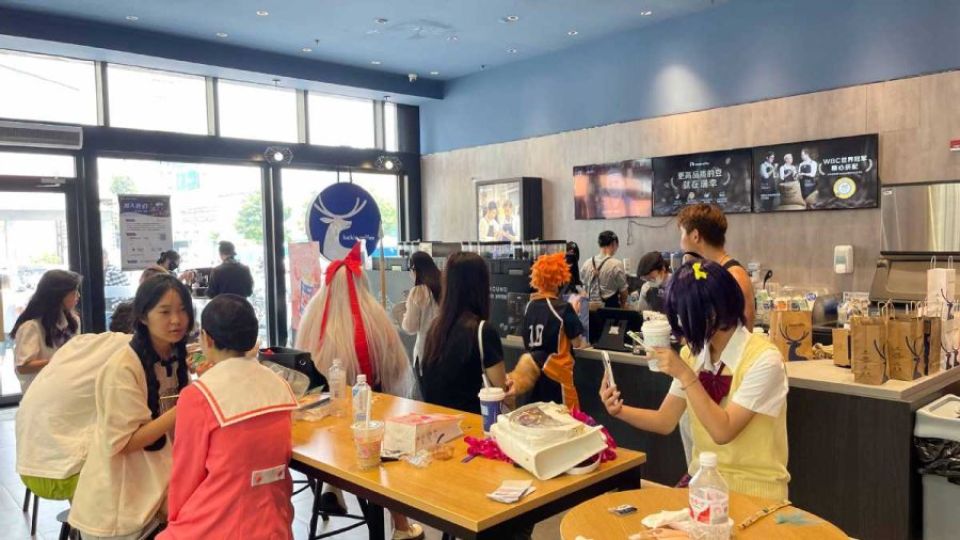September 11, 2024
BEIJING – Luckin Coffee, a leading player in China’s coffee market, has long considered Starbucks its primary competitor. With over 20,000 stores nationwide as of July this year, Luckin has surpassed Starbucks as the largest on-premise coffee chain in China.
However, with the coffee market becoming increasingly saturated, the company has turned its sights to a new frontier: tea.
In a strategic move to diversify its product offerings, Luckin Coffee has launched a series of jasmine-flavored light milk tea beverages, targeting the emerging tea market dominated by HeyTea and Yunnan-based Chagee.
A new campaign, “Morning Coffee and Afternoon Tea”, is designed to align with local consumer habits, where coffee is typically consumed to start the day, and tea is enjoyed for relaxation in the afternoon.
Bernie Gao, an analyst at Mintel Group, a market research institute, said the development of tea and fruit-infused coffee products is helping to broaden the coffee audience in China.
“Coffee brands are actively enriching their menus, especially with food options, which helps appeal to new customers and boost sales,” Gao said.
Luckin Coffee has been aggressive in its product development, launching a total of 102 new products in 2023.
By the end of the year, eight of these products had each generated sales exceeding 100 million yuan ($14.1 million). Among its most successful innovations are orange-flavored Americano and coconut latte, considered a local innovation by the brand, selling over 700 million cups since its introduction three years ago.
The intense competition in the coffee market has forced brands like Luckin to explore new avenues for growth.
Its afternoon tea series presents an untapped opportunity, particularly among health-conscious consumers who prioritize high-quality beverages.
Afternoon tea orders have become a significant revenue driver, with platforms like Ele.me reporting an average of 2.7 cups per order.
Luckin’s foray into tea drinks has already shown promise, with over 11 million cups sold in the first week of new product launches.
Zhu Danpeng, an independent food and beverage industry analyst, said that this move allows Luckin to expand its nonpeak beverage offerings, further solidifying its market position.
“Luckin Coffee’s strategy of integrating coffee and tea aligns with the future trends in China’s beverage market,” Zhu said.
It is hard to overlook the quick rise of tea makers such as Chagee.
Zhaimen, a data institute specializing in the catering sector, said that in 2023, Chagee opened more than 3,511 stores nationwide, a jump from having a total of 934 stores in 2022.
The brand had 69.4 million registered members as of the end of 2023. The number nearly doubled in the first five months of this year to reach more than 130 million.
Chagee’s founder Zhang Junjie said at a forum in May this year that in the first quarter, the company had achieved revenue of 5.8 billion yuan. Its average store sales in the first quarter reached 549,000 yuan, which exceeded all the other tea beverage on-premises stores and Starbucks China, he said. The company reported revenue of 10.8 billion yuan in 2023.
Other tea-making brands have gained momentum as well. As of May 17, the number of Mixue Bingcheng stores stood at 29,273 with Auntea Jenny locations numbering 8,000. By the end of 2023, there were over 9,000 Goodme stores in operation.
This is not Luckin’s first attempt to enter the tea market.
In 2019, the company launched “Little Deer Tea”, a new tea drink brand that initially saw success with over 300 stores. However, the brand struggled to maintain momentum, eventually scaling back operations and converting most Little Deer Tea stores into Luckin Coffee outlets.
Having a slice of cake from a tea shop might be what Luckin Coffee requires to boost sales amid challenges in profitability.
The company reported a 13 percent decline in net profit for the second quarter of 2024, primarily due to a decrease in average selling prices and ongoing market competition.
The intense price wars in the coffee sector have made it difficult for brands to maintain profitability, forcing them to continuously innovate.
Luckin Coffee’s revival of its light milk tea series may be a strategic response to these challenges, which offers a diversified menu to appeal to consumers beyond traditional coffee consumption hours.
The boundaries between coffee and tea sectors are becoming more blurred thanks to the integration of products. Tea beverage brands like Auntea Jenny and Nayuki are themselves entering the coffee market, adding coffee items to their menus and increasing competition.
Starbucks is also adapting to these market dynamics. In its third-quarter report for 2024, the company emphasized its focus on high-quality, sustainable growth in China.
The company has continued to seek growth from expansion, particularly via its penetration into smaller cities. A recent report by online delivery platform Meituan said that in the past three years, the number of coffee shops in county-level markets across the country has continued to rise.
As of January 2024, the number of coffee shops in county-level towns had increased by 113.36 percent compared to a year earlier. According to GeoQ Data, the number of coffee chain stores at the county level had reached 5,454 as of January, accounting for about 17 percent of the total number of coffee chain stores in the country.
Starbucks added 213 new stores in the third quarter alone, bringing its total to over 7,300 in more than 900 county-level markets. Meanwhile, the company is also tapping the potential from Chinese communities to reach new store numbers by the end of this fiscal year.


